
|
September 9, 2020
Elementary
Welcome Back...

|
|
|
|
|
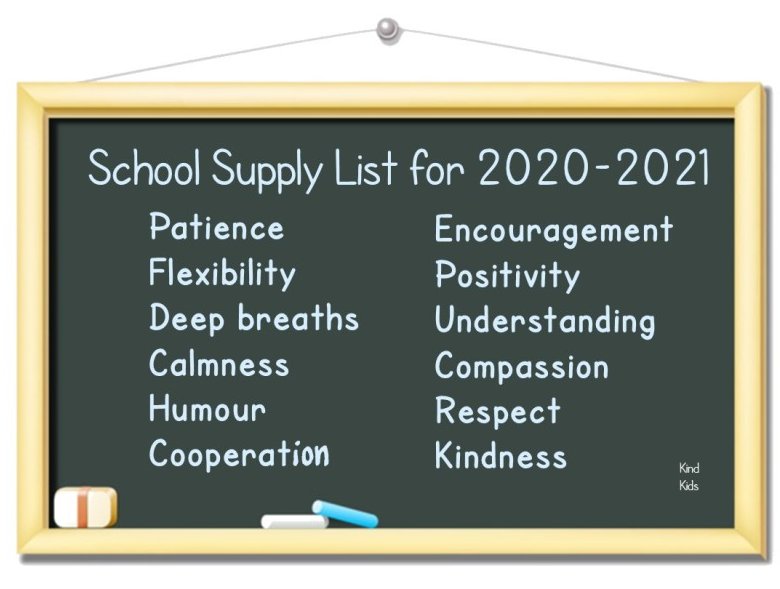
|
This summer provided a brief period to catch our breath, and as we enter September return-to-school plans across BC are in motion. All School Districts and schools have been coordinating complex schedules, managing teacher, student, staff and community safety, and distributing resources.
|
|
|
We recognize that planning for the start of the school year has been a stressful time for parents as there has been a lot of uncertainty and unknowns related to schooling during the pandemic. We hope that this Snapshot will serve to support you in these challenging back to school times!
|
|
|
|
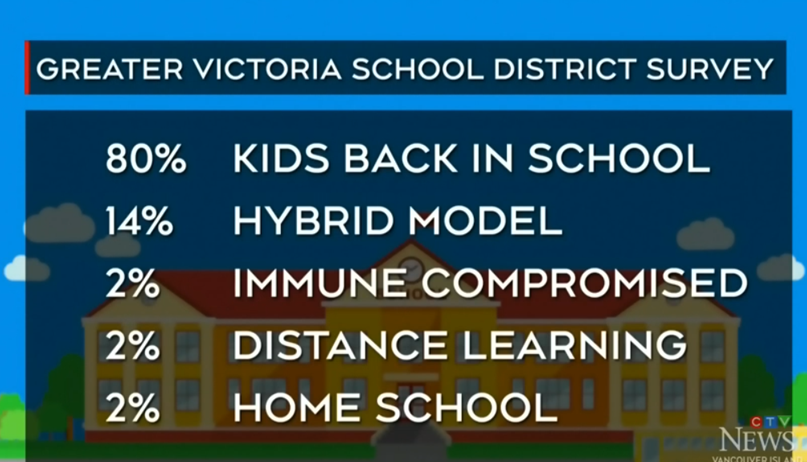
|
Greater Victoria School District Parent Survey Results: most of the 13,400 families that responded approved of in-class learning. Click on photo to watch the video (CTV Island News, Sept. 2, 2020)
|
| |
|
While B.C. has announced a return to
in-class instruction under Stage 2 for September 2020, school districts must have the necessary plans in place to be able to shift between stages if and when required. Below is how you can expect elementary school to function in Stage 2.
|
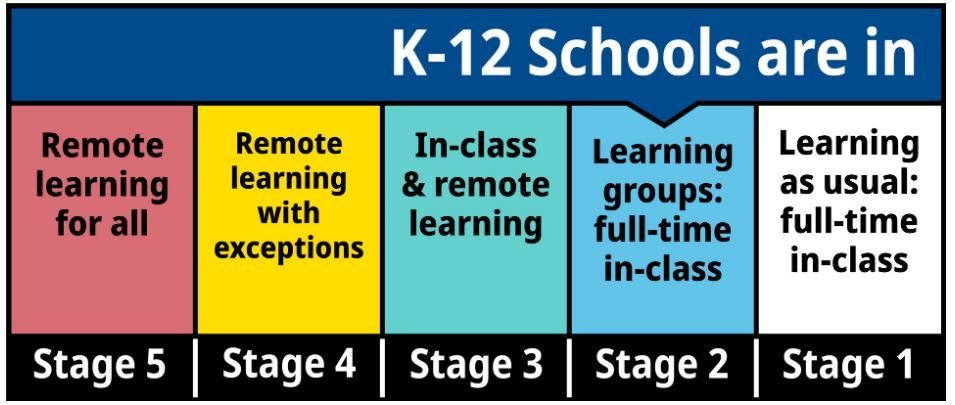
|
|
|
|
|
|
|
|
|
While the return to school will be welcome and exciting for many students, others will be feeling anxious or frightened. Here are tips to help your children navigate some of the complicated emotions they may be facing with going back to school.
|
|
|
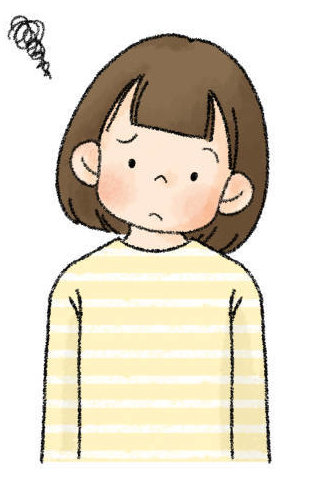
|
My child is scared to go back to school. How can I help them feel at ease?
Children may feel nervous or reluctant to return to school, especially if they have been learning at home for months. You can make them feel at ease by trying to keep things as normal as possible while letting them know that it’s OK to be apprehensive. It’s also important to understand that the main concern for many students most likely won’t actually be COVID-19; it will be about how their classes will be organized, their ability to adapt to new formats and new learning environments, and of course their grades. Children are most likely to be anxious during the first week or two of school and then, for most kids, their anxieties should abate as they get used to the new routine.
|
|
|
|
My child is really struggling right now. The past six months have been really hard for them. They are a lot more anxious than they used to be. Should I let their teacher know that they’re struggling?”
Your child’s teacher would definitely benefit from knowing that your child is having an exceptionally hard time right now. While all children have been impacted by the experience of living through a global pandemic, some have been affected more than others. If this is the case for your child, it’s a good idea to communicate with the school.
|
| |
|
Can well-meaning parents make things worse by saying the wrong things?
Parents shouldn’t be too hard on themselves, but sometimes they may have to walk a fine line. Just because a child doesn’t initiate a conversation, doesn’t mean they aren’t feeling stressed. But obviously you don’t want to stoke fears by conjuring scary scenarios or planting seeds—it’s better to ask exploratory open-ended questions. For example: “You don’t seem to be your usual self lately. Is something bothering you?”
|
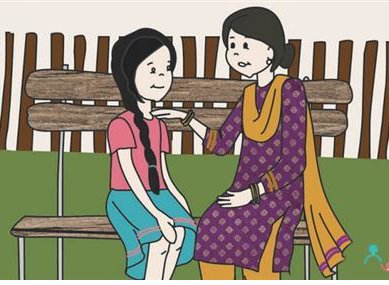 |
|
|
As children often take their emotional cues from the key adults in their lives – including parents and teachers – it is important that adults manage their own emotions and listen to children’s concerns. However it’s also not about pretending everything is totally OK. It’s about modeling emotional intelligence yourself and trying to show your children how to live with uncertainty, while also trying to make the best of this unprecedented time.
|
|
|
|
 |
What early warning signs of increased anxiety should parents look for in kids returning to class?
Children tend to express anxiety through physical symptoms so parents should look for signs such as stomach aches, decrease in appetite, headaches, irritability and difficulty sleeping. Parents know their children and their behaviour and should have a good sense of when their kids are emotionally upset or preoccupied.
|
| |
|
|
|
|
Stress Explained for Elementary Children This video teaches elementary children what stress is, how stress is natural and normal, and how it can be helpful. Two coping strategies are taught by children. This video is useful for parents to view with their children who are feeling stressed about returning to school.
|
| |
|
|
How can I gently check in to see how my child is coping?
It’s important to be calm and proactive in your conversations with children – check in with them to see how they are doing. Their emotions will change regularly and you need to show them that’s okay.
Engage children in creative activities, such as playing and drawing, to help them express and communicate any negative feelings they may be experiencing in a safe and supportive environment. This helps children find positive ways to express difficult feelings such as anger, fear or sadness.
|
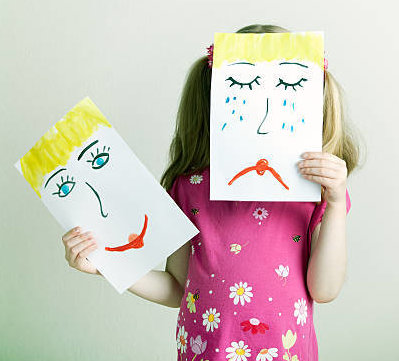
|
| |
|
How can I encourage my child to follow precautions (such as frequent hand washing, physical distancing, etc.) at school?
One of the best ways to keep children safe from COVID-19 and other diseases is to encourage regular hand washing. It doesn't need to be a scary conversation. With younger children sing along with their favourite song or do a dance together to make learning fun. Make sure to teach them even though germs are invisible, they could still be there. When children understand WHY they need to wash their hands, they’re likely to continue doing so.
|
My child is not part of the same group as his close friends returning to school and is feeling even more isolated.
Encourage your child to talk through any friendship worries. A child who ends up being in a separate bubble from their best friend might worry that the two of them aren’t “allowed” to be best friends anymore. You could help alleviate this worry by saying that there’s no rule saying that you’re not allowed to be best friends, just rules about how much physical contact you can have with that person.
Help your child to schedule a virtual or physically distanced face-to-face visit with a friend that they are hoping to be able to reconnect with at school.
|
|
|
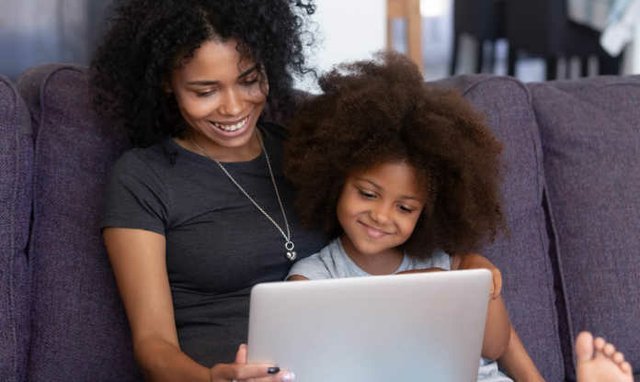
| They might also want to talk about not being in the same “bubble” within the school and that their “visits” at school might just be waving at one another across the playground and to come up with a plan for dealing with that. Maybe they might want to arrange to do something else together outside of school, in a way that’s safe for all concerned.
|
|
|
|
Greater Victoria School District FAQ's We have compiled a series of questions that are being commonly asked by our families. This resource is intended to provide greater clarification on a variety of topics, including: Hybrid Learning, Immune Suppression, etc.
Click on the picture to download the document.
|
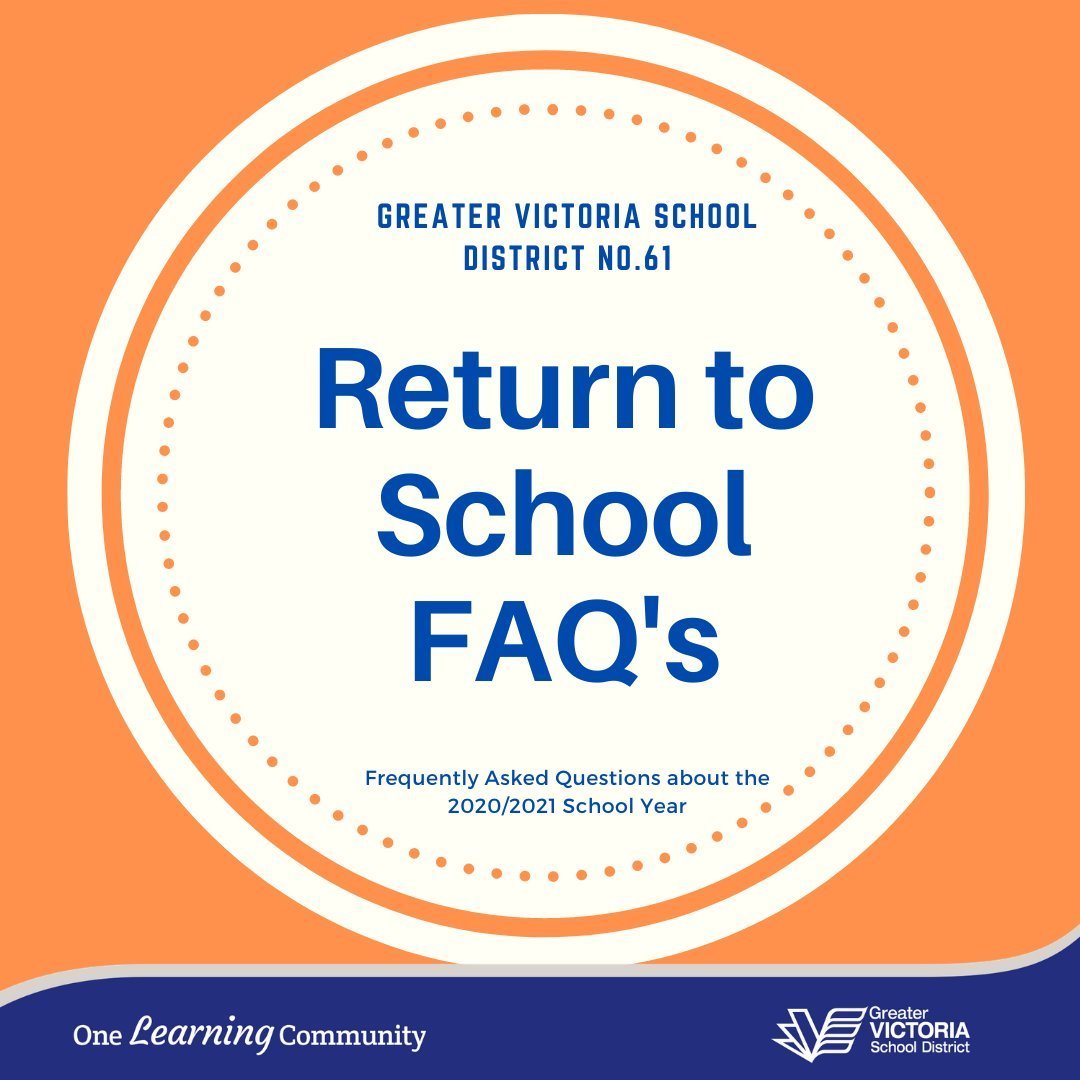
|
| |
|
|
|
|
|
|
|
|
|